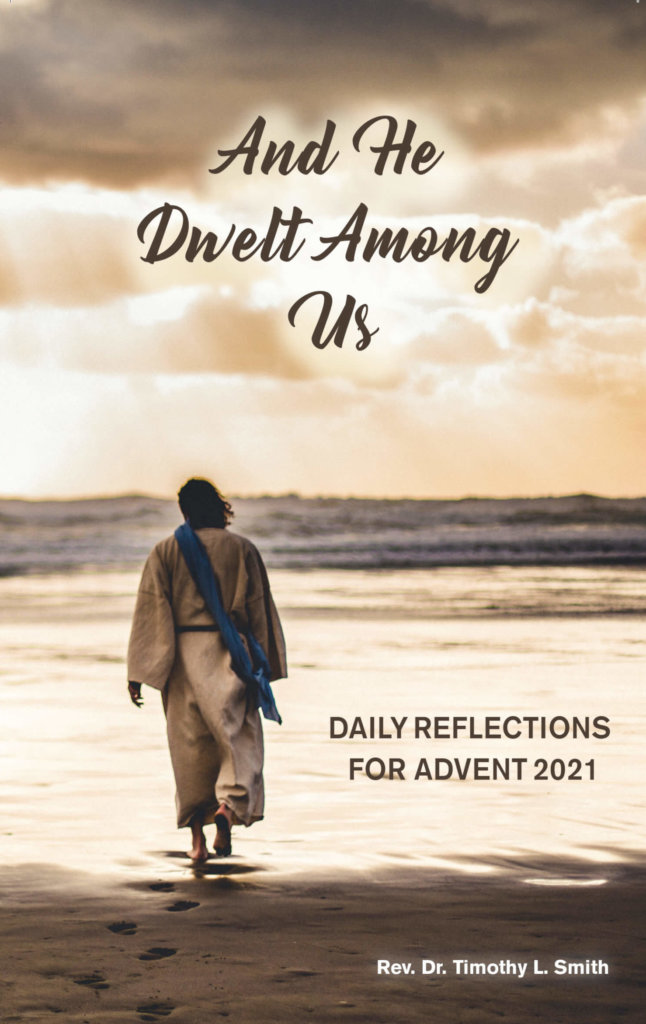PRAYER
Take a moment to become still, aware of God’s presence, and then pray:
O Emmanuel, God-with-us, You know intimately the trouble and heartache of our world and of our lives. Breathe the quiet calm of Your Spirit over us, and ready our hearts to listen. Silence every voice but Your voice so that we might hear words of life and love. Amen
REFLECTION
Let the same mind be in you that was in Christ Jesus, who, though he was in the form of God, did not regard equality with God as something to be exploited, but emptied himself taking the form of a slave, being born in human likeness. And being found in human form, he humbled himself and became obedient to the point of death – even death on a cross.
Philippians 2:5-8
“O great mystery” (“O magnum mysterium”) marvels an ancient chant for Christmas Day, “that animals should see the newborn Lord lying in a manger.” Who could not wonder at the mystery of mysteries, that God would take flesh to save His creation and make us children of the Most High! Who would even dare to imagine God becoming a part of His creation to share His life and glory! This is the greatest of all mysteries, beyond all human logic or explanation, the infinite becoming infant, and Spirit putting on flesh!
The apostle Paul is in awe of this mystery, that in this baby “the whole fullness of deity dwells bodily” (Colossians 2:9). Or, as John exclaims, “The Word became flesh and dwelt among us” (John 1:14). Here is God’s eternal Son, a tiny, helpless baby, hungry, crying, placed at the mercy of others. In a Nazi prison, Dietrich Bonhoeffer was overwhelmed by this mystery:
“Here is God’s Son, a tiny baby, hungry, crying, all human, and at the mercy of others. Don’t speak; stop thinking! Stand still before this statement! God became a child! Here He is, poor like us, miserable and helpless like us, a person of flesh and blood like us, our brother.”
(Dietrich Bonhoeffer, God Is in the Manger)
Translators struggle for the right words to express the mystery of God coming down to us and dwelling among us. They labor over the Greek word kenoō meaning “to make empty, to make void”, so that they translate it variously as “made himself of no reputation (King James Version); “emptied himself (New Revised Standard); “made himself nothing” (New International Version), “laid aside his privileges” (New American Standard Bible); and “set aside the privileges of deity” (The Message). You sense the translators’ challenge to communicate the great mystery of God emptying Himself for us. But the essential idea is that the Son of God divested Himself of rank and glory and becomes, comparatively, nothing. Theologian J. I. Packer comments on the divine self-emptying, even death on a cross.
“We now see what it meant for the Son of God to empty himself and become poor. It meant laying aside of glory (the real kenosis); a voluntary restraint of power; an acceptance of hardship, isolation, ill-treatment, malice, and understanding; finally, a death that involved such agony – spiritual even more than physical – that his mind nearly broke under the prospect of it. It meant love to the uttermost for unlovely human beings, that they through his poverty might become rich.”
(J. I. Packer, Knowing God)
Out of unfathomable love, God’s Son “did not regard equality with God as something to be exploited”, but poured Himself out for us. Refusing to take advantage of His deity, Jesus not only emptied Himself of “the form of God”, but submitted to humiliation and degradation. He who had been “in the form of God” took on “the form of a slave” and was “born in human likeness.” He appeared not in the likeness of transcendence and glory, but as “a man who has told you the truth” (John 8:40). He was fully God dwelling among us, living out a fully human life.
But in this, God was never acting more like God than in His self-denying love. “Christ expresses in becoming a human being an essential quality of being God, namely, the giving of Himself for the sake of others.” (Stephen Garrett, “The Dazzling Darkness of God’s Triune Love”, Themelios, Vol. 35)
This is who God is! The lowly manger and cross reveal Him. God would rather die than live without you. Yes, “O great mystery!”
WORSHIP
Think back over the past 24 hours and note when you experienced a “high” and a “low”. Share with God how the humanity of Jesus might speak to you in what you experienced.



